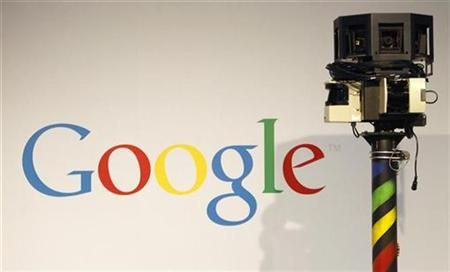Your location 'extremely valuable' to Google

Google recently wrote off concerns about its mobile devices sending precise user location data back to its servers, but recently uncovered emails illustrate that user location is instrumental in its strategy.
The location information from millions of mobile devices and personal computers is extremely valuable to the company's future business, according to emails filed as part of a lawsuit against the search giant last year.
Andy Rubin, Senior Vice President of Mobile at Google wrote to Larry Page, founder and now CEO, explaining that location data from mobile phones was extremely valuable to Google, especially given the privacy blow-up concerning its Street View cars at the time.
Google is suspected to have gathered personal information of portal users from October to May through the Wi-Fi networks while setting up its controversial Street View program last Summer.
The revelation led to investigations in the US, Germany Australia and Korea, and forced the company to resort to other ways to get WiFi data.
Then, just weeks ago Los Angeles-based researcher Samy Kamkar illustrated that Google Android based smartphones were sending precise GPS location and other data back to Google several times an hour.
I cannot stress enough how important Google's wifi location database is to our Android and mobile product strategy, Google location manager Steve Lee told founder Page in the memo. We absolutely do care about this because we need wifi data collection in order to maintain and improve our wifi location service.
The company is using this information to create a digital databases that include the physical location of hundreds of millions of Wi-Fi access points. Smartphones use those databases as a kind of electronic map to chart their own location.
Moreover, beyond improving services like maps for end-users, it also positions the company in front a fast-growing location-based advertising market.
Revenue derived from so-called location-based services are expected to swell to $8.3 billion by 2014, up from $2.6 billion in 2010, according to research firm, Gartner.
The problem, however, is if the data fall into the wrong hands, or if the data is compromised.
The data is precise enough that Kamkar says Google can correlate timing and frequency of phone usage to pinpoint an Android owner's home address.
If your phone is at the same location during night hours, they know where you live, says Kamkar. If your phone location is on the move, they can guess that you're in a car and even calculate how fast your car is moving.
Last September David Barksdale, a now former Google engineer, used his position at Google to access user accounts and learn private information about at least four teens.
The company would not comment on the emails.
Last week it did issue a statement saying all location sharing on Android is opt-in by the user and that we provide users with notice and control over the collection, sharing and use of location in order to provide a better mobile experience on Android devices. Any location data that is sent back to Google location servers is anonymized and is not tied or traceable to a specific user.
Both Google and Apple are expected to testify on May 10 to Congress about its data collecting practices.
© Copyright IBTimes 2024. All rights reserved.





















